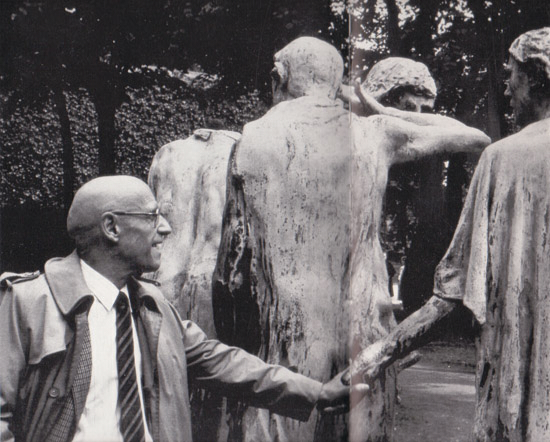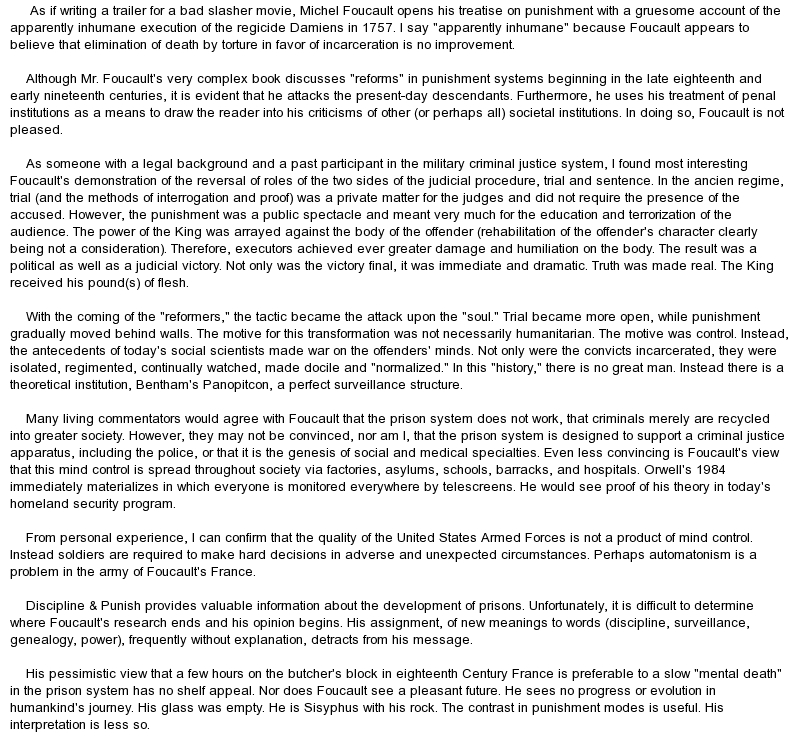


No longer were bodies treated en masse, but instead, bodies were treated individually as objects of control, subjected to subtle and overt coercion. The body became a site of investment, and the scale of control over bodies shifted. In this chapter, Foucault explicates systems of discipline that produce docile bodies. Foucault argues that the emergency of discipline in the classical age “discovered the body as object and target of power” (136), renewing interest in the maintenance, control, and commodification of the body. At least spare us their morality when we write.Foucault, Michel. “Docile Bodies.” Discipline and Punish. Do not ask who I am and do not ask me to remain the same: leave it to our bureaucrats and our police to see that our papers are in order. I am no doubt not the only one who writes in order to have no face. in which I can lose myself and appear at last to eyes that I will never have to meet again.


'What, do you imagine that I would take so much trouble and so much pleasure in writing, do you think that I would keep so persistently to my task, if I were not preparing – with a rather shaky hand – a labyrinth into which I can venture, into which I can move my discourse. “Are you going to change yet again, shift your position according to the questions that are put to you, and say that the objections are not really directed at the place from which you are speaking? Are you going to declare yet again that you have never been what you have been reproached with being? Are you already preparing the way out that will enable you in your next book to spring up somewhere else and declare as you're now doing: no, no, I'm not where you are lying in wait for me, but over here, laughing at you?'


 0 kommentar(er)
0 kommentar(er)
